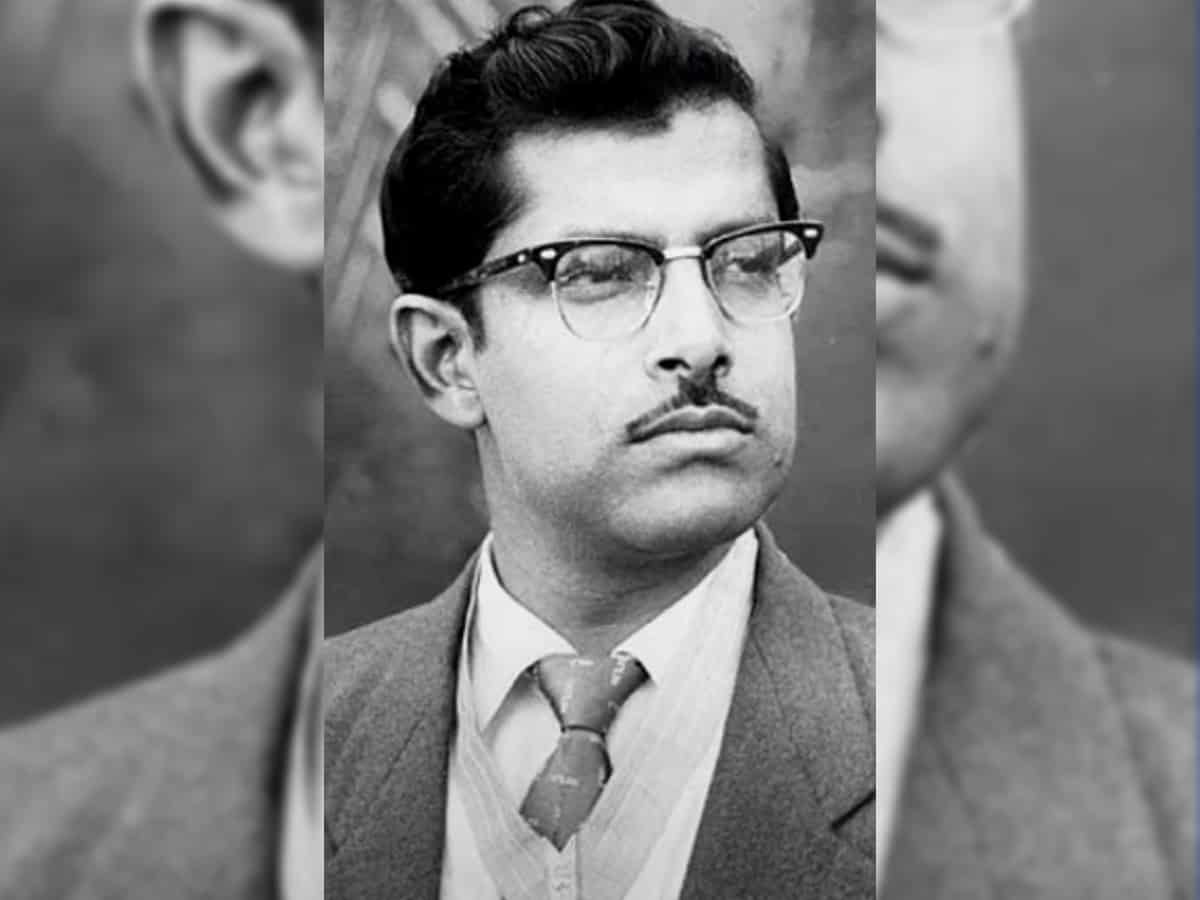
In the make believe world of Bollywood, where all the stories are about super star heroes or heroines and their dramatic deeds, Hrishikesh Mukherjee dared to be different. He made films about the common man and everyday life. In the process, he was able to give giants of the silver screen such as Amitabh Bachchan, Rajesh Khanna, Dharmendra, Raj Kapoor and others, a chance to show their acting skills in a completely different milieu. On his 100th birth anniversary on September 30, he is remembered as one of the most influential Hindi film directors of all time.
Many of his films are considered landmarks and are still talked about. These include Anari (starring Raj Kapoor and Nutan), Chupke Chupke (Amitabh, Dharmendra, Sharmila Tagore and others), Anand (Amitabh, Rajesh Khanna), Abhimaan (Amitabh and Jaya Bachchan), Guddi (Dharmendra and Jaya Bachchan), Gol Maal (Amol Palekar, Utpal Dutt, Bindiya GoswamI), Namak Haraam (Amitabh Bachchan and Rajesh Khannna) and many more such ground breaking films.
Mukherjee’s films were such that they received wide acclaim both from the critics as well as the audience. Through a career that spanned 40 years, he directed 42 films, each of them being a rare gem. They were worth watching again and again.
He managed to create his own path which was distinctly different from the extravagant fantasy of formula films of those days. He was a director who made films that could make the audience laugh with merriment or shed tears in heartfelt grief. Yet, there was never an iota of melodrama. It takes great skill to present stories in the manner that was a trademark of all of Hrishikesh Mukherjee’s films.
He studied Chemistry in the University of Calcutta before taking to films full time. His first ambition was to be a biochemist but fate guided him along another path. He was interested in photography as a hobby and that is how he began getting involved in films. After serving as an editor and assistant director to the legendary Bimal Roy, Mukherjee made his debut as director in 1957 with a film named Musafir.
The film had a new concept. Mukherjee showed his penchant for the offbeat story with his first film. The theme was about different sets of tenants who take up rented accommodation in a house. It was actually three different stories in one film and therefore it was highly experimental. The only common link was that they stayed in the same house one after another. No other director would have begun in this fashion. But Mukherjee had the courage to do it.
Dilip Kumar, who was one of the actors, warned Mukherjee that the film may flop. But nevertheless the thespian decided to act in it free of charge because he felt that this film was worth promoting. Mukherjee said: “Dilip Kumar, who is a very dear friend, heard the story of Musafir and remarked: Hum sab ko marwayega tu. People will think that I will act alongside Kishore Kumar and Suchitra Sen who are in the film. Then they will see that each one has a separate story. I doubt it will succeed. But still, you should make it. I will act free of cost.”
Musafir carried a different message and was an absorbing story of human relationships. It was a novel idea for the audience who were then used to only song and dance routines and climactic fight scenes at the end. The strongest theme that permeated all of his films was that of good human relationships. Mukherjee believed that when humans understand the value of interdependence, they are more respectful and show the qualities that separate the human race from animals.
Furthermore, Hrishikesh Mukherjee seemed to love casting his actors in roles that were completely different from their usual ones. In Chupke Chupke, the he-man Dharmendra is a prankster while Amitabh Bachchan is a nervous professor. In Abhimaan, actress Bindu who was then known for her roles as vamp plays the role of a silent lover who even helps to bring Amitabh and Jaya together. Another well-known vamp Sashikala plays the role of a docile Bhabhi to Rekha in the film Khubsoorat. Every time, Mukherjee’s switch worked and the audience wholeheartedly accepted their stars in their new avatars.
Like other directors Mukherjee also faced upheavals in his long career. But his sense of humour never deserted him. He was always courteous and gentle with everyone he met. “I dream of a world where there is no violence. So, I don’t show violence in my films. I like to show the good side of life,” he said once.
He was honoured with the Dadasaheb Phalke award in 1999 and the Padma Vibhushan in 2001. The International Film Festival of India honoured him with a retrospective of his films in 2005. A year later he died of kidney failure at the Lilavati Hospital in Mumbai. With his departure, the film world lost a man with the courage to be different who was also gentle and humorous. Today’s Bollywood needs one more man like Hrishikesh Mukherjee.
